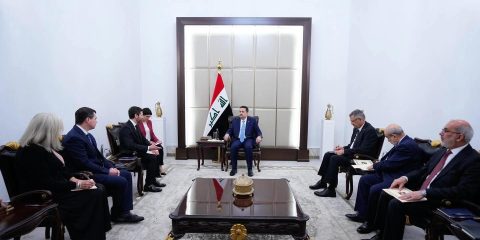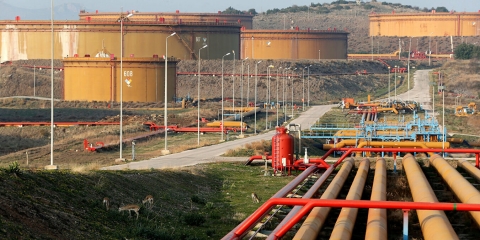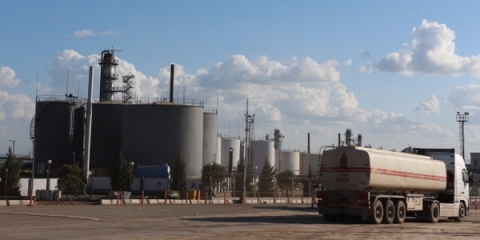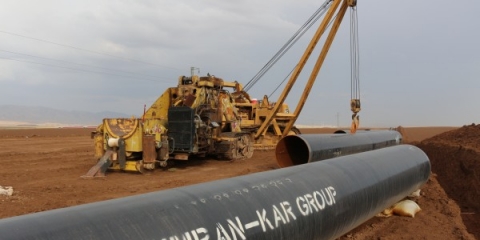UPDATE: No oil minister yet in Mustafa Kadhimi’s new government
Kadhimi and 15 members of his Cabinet were approved by Parliament early Thursday but political disputes blocked an oil minister from being nominated and others from passing.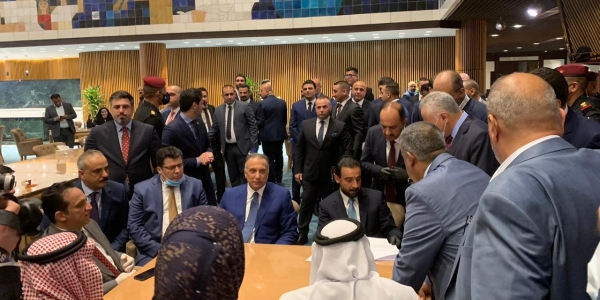
BAGHDAD - Mustafa al-Kadhimi - a journalist and, since 2016, director of the Iraqi National Intelligence Service - was sworn in as Iraq's Prime Minister early Thursday morning, after two other nominees were sidelined by political fighting, six months after Adil Abd al-Mahdi semi-resigned.
Kadhimi's chances were almost derailed by competing claims of parties to certain ministries, which leaves the new government without a sitting minister of oil, foreign affairs, justice, agriculture, migration, culture, or trade.
Fifteen ministers were approved and five were rejected, which is enough for Kadhimi to form a government.
"Prime Minister Mustafa al-Kadhimi did pledge at parliament that the oil minister will be from Basra," said MP Abed Risan Abed al-Saaidi. A second MP, Nada Shakir Jawdet, confirmed the promise of a Basrawi minister.
Kadhimi is now effectively acting Oil Minister, who will rely on the two deputy oil ministers - Hamid Younis Salih and Karim Hattab - after Senior Deputy Oil Minister Fayadh Nema was forced to retire due to a newly enforced age limit.
Kadhimi's government program, which was amended and approved by Parliament Wednesday, will "address the consequences of the current economic crisis caused by the decline in oil prices" with a number of measures, including:
- "opening serious negotiations to restore Iraq's share of oil exports"
- "cooperate with international financial organizations (like the International Monetary Fund and the World Bank) to develop programs to minimize the impact of the economic crisis"
- "complete and submit to the Parliament a draft Iraqi National Oil Company Law"
- "form a negotiation delegation to discuss the issue of amending the licensing contract rounds with oil companies in light of the current changes in global markets"
Abd al-Mahdi, who remained a quasi-caretaker premier, requested to be replaced as anti-government protests escalated. Kadhimi faces significant challenges besides appeasing protester demands:
- An ongoing global pandemic
- A resurgent self-proclaimed Islamic State group
- Washington's threat to sanction Iraq for buying Iranian energy
- Increased tension with the Kurdistan region over oil and revenue rights
- And a financial crisis caused by the crash of oil prices
After Washington approved only a 30 day waiver to exempt Iraq from sanctions for buying energy from Iran, it signaled last week that approving the Kadhimi government was a prerequisite for longer waiver periods and improved relations.
"The Secretary [of State] granted this brief extension of the waiver to allow time for the formation of a credible government," a State Department statement said. "Once that government is in place, the Secretary will reassess whether to renew the waiver and for how long, and looks forward to resuming our cooperation with the Government of Iraq to reduce Iraq's dependence on unreliable Iranian energy imports."
Within hours of Parliament's vote, the State Department issued a statement that it had approved a 120-day waiver to begin when the current 30 days concludes.
The following is the result of Parliament's session approving the Kadhimi government:
Approved:
Postponed:
Rejected:

